Nature and English: Espinosa de los Monteros
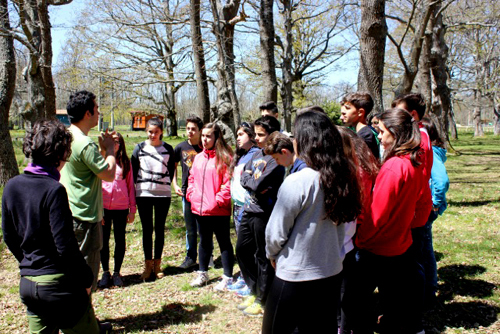
A group of 21 students of 2º of Secondary Education from our school have just returned from Espinosa de los Monteros (in the north of Burgos) after a few days of indoors and outdoors activities in the area. There, they were assisted by instructors who told them about many things: the diferente layers of rocks and sediments that form the ground, the kind of plants and animals that you can see in the region, the origin of the extraordinary, famous cave of Ojo Guareña, and so on.
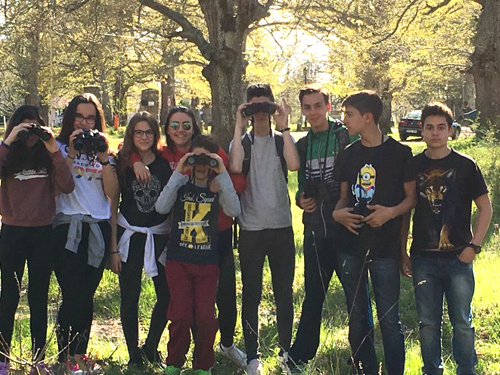
And all this using the English language as the vehicle of communication. They also had the chance to experience everyday life with their own classmates and other students from a different school. It seems that they enjoyed the experience very much. We hope they learned a lot, too!
Iván Rubio and Pedro Escudero
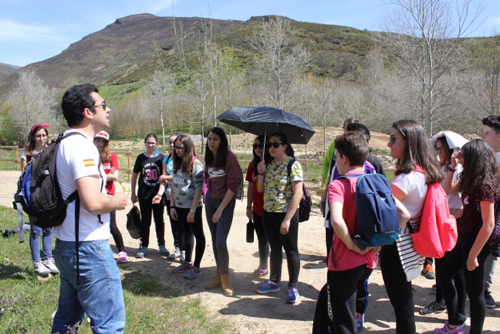
| Etiquetas: | inglés extraescolares linguistic immersion inmersion linguistica |
British and American culture
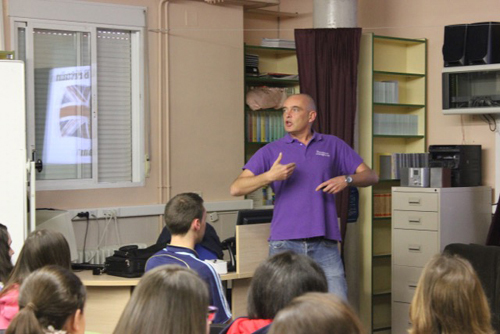
It’s been some time since Sam, a man from England, entered our halls to teach us a bit more about English culture. He used photos, games and his funny wit to keep us all interested while he showed us different pronunciations (from American to British), flags, maps and even Scottish kilts; he also asked us some questions to see if we were paying attention and if we were understanding him. Time flew and, at the end of the period nobody wanted to leave. We would love to have him back!
Pilar Alonso Pita. 1º Bach B
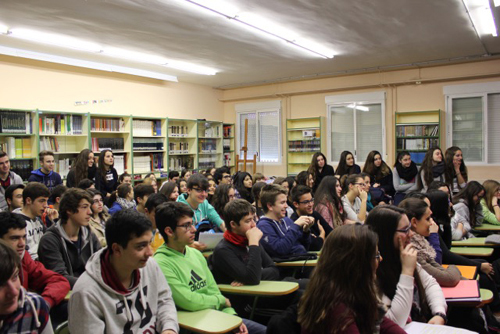
| Etiquetas: | inglés extraescolares linguistic immersion |
The Pollution on Beaches
|
The 2ºA and 2ºB classes did several projects about how to recycle, the pollution on beaches, the forest fires and how to save the animals, plants and our planet. We learnt a lot and we had fun. Marcela Ferrándiz - 2º A |

|
Beach Pollution. Posible solutions: - Campaigning for beach-goers take their bag to take away. - Place garbage dumps of classified form. (For cardboard, plastic, aluminium, etc. - Incentives that are carried over own garbage that they generate. - On islands, getting boaters, with garbage bags generated by visitors to the mainlad. - Generally people urinate a lot on the beaches, so, they should built more urinals. - Drains must not lead to the beaches (must go through a treatment plant) By Pablo Aparicio, 2ºA |


|
Don’t pollute beaches, people will be angry if you do it. The 3 R’s are so important that if you do it you can save the planet. If we reuse paper and bottles, we won’t buy too much paper and bottles. If we save animals, they won’t extinguish. Raúl Fernández - 2º B
Pollution can take the form of chemical substances or energy, such as noise, sounds or light. Adverse air quality can kill many organisms including humans. We need to stop pollution or we will destroy our planet. Susana Molinero - 2º B |

|
The Pollution of Beaches Seven millions of persons approximately visit the beaches of Spain every year. They leave about 25 tons of rubbish in them. The 80% of victims garbage marine animals die from ingestion or inmersion. If this continues marine life will become scarce, the food that comes from the sea will be contaminated and will be very expensive, fishermen will lose their jobs, and swim in the sea will involve a great health risk. We can recycle all rubbish and keep clean the beaches to avoid this disasters. Lucía Tasis 2º ESO A |
| Etiquetas: | linguistic immersion ingles |
|
Inmersión Lingüística
|
||
| La semana del 19 al 23 de enero, 54 alumnos de 1º y 2º de la E.S.O. del I.E.S,. “María Moliner” nos instalamos en Palencia con el objetivo de mejorar nuestro nivel de inglés a través de actividades divertidas. | 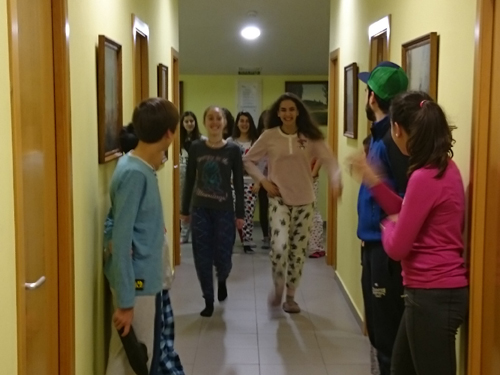 |
|
|
Durante nuestra estancia hemos realizado gran variedad de juegos, con ayuda de monitores nativos y durante las clases y otros ejercicios hemos aprendido mucho inglés. También realizábamos actividades fuera del campamento, como escalada, espeleología, cruzamos puentes tibetanos y nos tiramos por una tirolina en La Roca.
Estamos muy agradecidos a Ana y a Carmen por habernos acompañado en esta semana tan fascinante.
|
||
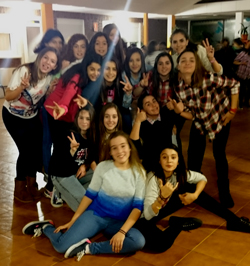 |
Firmado: Lucía Escalada, Lucía Sanz, Coral Sánchez, Sara de la Fuente, Andrea Martín y Raquel Marcos. |
|
| Etiquetas: | linguistic immersion |
ECO-CAMP LEKAROZ 2013
Hello! I’m Sergio Garrote Luengo. I’m in 2nd of ESO. This past week people of 2nd of E.S.O. went to a hostel in Lekaroz, and I was one of them. We went to Lekaroz from the 10th to the 16th of November.
When we arrived at the hostel on Sunday evening we could see the bedrooms and our room mates. There was anothers chool from Madrid and in the bedrooms we were mixed with the students of that school.
The activities were funny. Theteachers were native speakers of English, professional and very friendly people. We had serious lessons to, two every day. The worst thing was the food, but it doesn’t matter.
Pedro and Ana are theteachers who went with us. Thanks fo rmaking this possible. Thanks to the school, too, because it gave us this opportunity. This week was incredible. Possibly the best week of my life.
Sergio Garrote. November
| Etiquetas: | actividades extraescolares linguistic immersion |
|
Linguistic immersion programme Lekaroz (Navarra) November 2013 |
||
|
Twenty-five students of Second year of Secondary Education from our school enjoyed the opportunity of spending a week (from November 10th to 16th) at the Lekaroz hostel (in the valley of Baztan) and, at the same time, improving their knowledge of English. This was part of a programme sponsored by the Ministry of Education and the Conserjería de Educación of Castilla y León. In the programme, the students participated, together with another group of students from a school in Madrid, in a series of activities with the aim of making our students aware of the importance of the protection of the environment. |
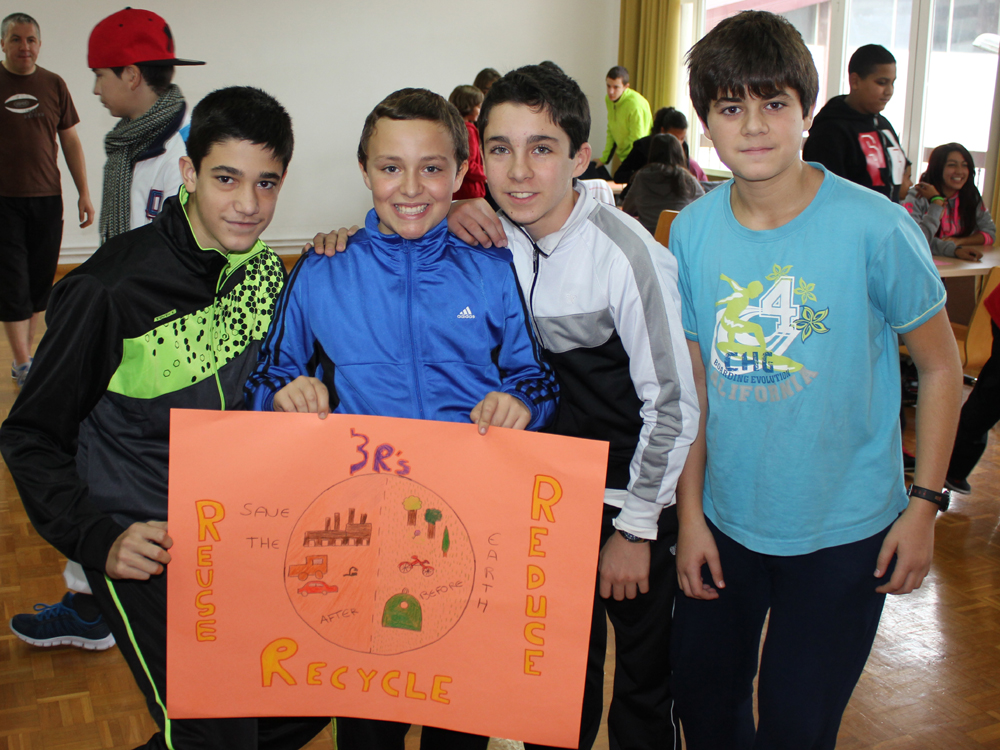 |
|
|
This protection is not only something that governments have to take care of: there are many useful things that can be carried out in our homes by acting sensibly.Our students learned about global warming, renewable energies, reducing, reusing, recycling, etc. They put into practice some of the things that they can do to help the environment: separating garbage into different containers, using “drop-off” centres, using public transport, reusing everyday ítems, and so on. |
||
|
They created posters to inform people about the protection of nature, designed windmills –with paper, a piece of cord and a pencil-, did role play activities about the topic of the Programme, discovered ways of reducing the consumption of energy at home, etc. All this took place in the facilities of the youth hostel in Lekaroz in a very friendly atmosphere. Students had to share their lives with students from a different background, something that will probably help them to be more mature. |
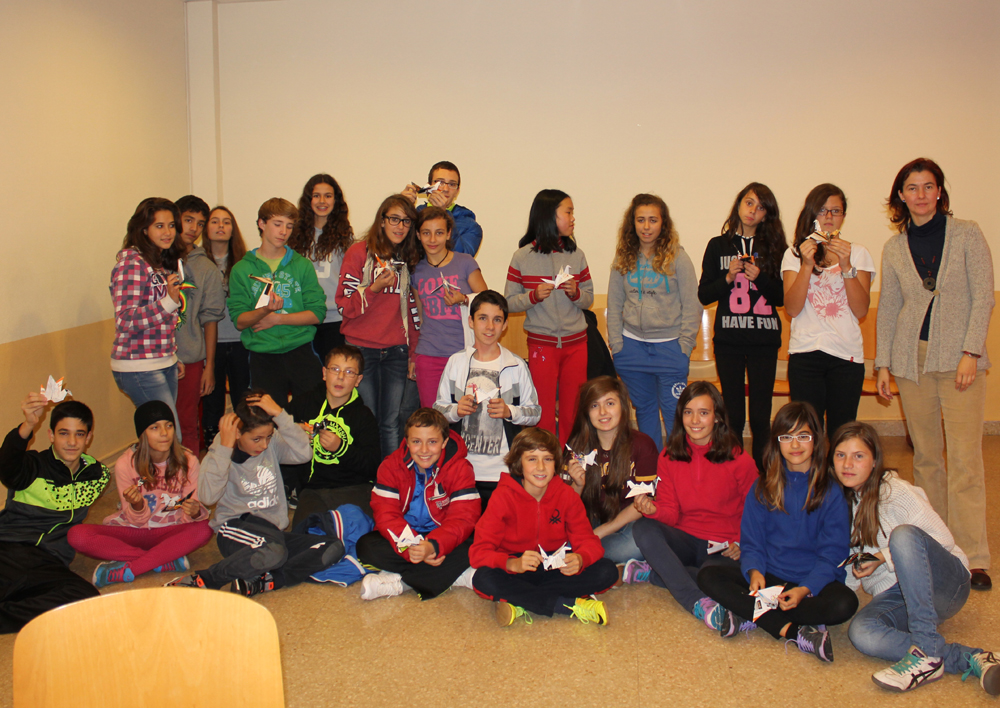 |
|
|
All the activities were performed in English: greetings, activities with monitors and teachers, casual conversations during the breaks or the outings, and so on. Students and teachers have agreed that it has been a wonderful experience full of benefits not only from the point of view of the students’ improvement in the use of the English language, but also by making them more mature and responsable citizens. Needless to say, we would like to thank monitors and the hostel workers in Lekaroz for their excellent work, as well as encouraging the Ministry of Education to continue with such a good project in the following years. |
||
|
Ana Mª de Cos y Pedro Escudero Profesores acompañantes en la actividad |
||
| Etiquetas: | linguistic immersion actividades extraescolares |